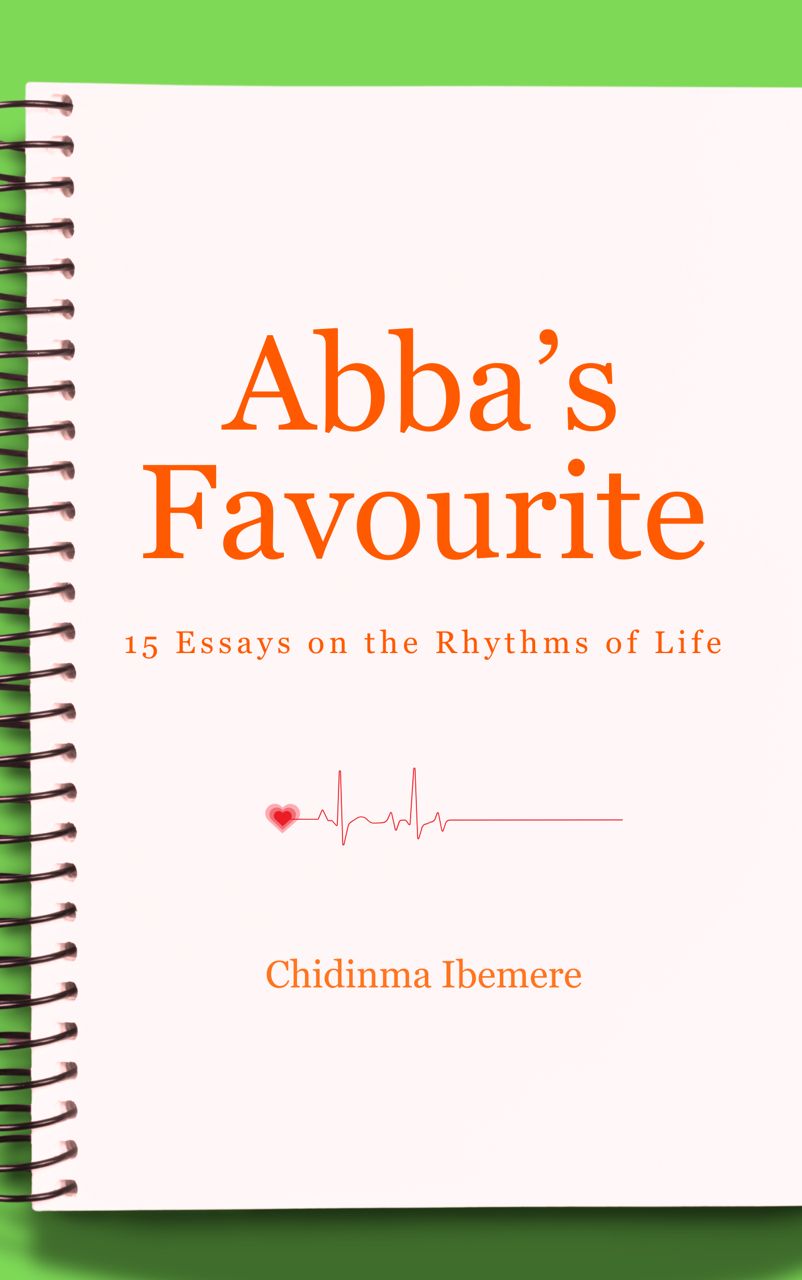Features
BN Book Review: Abba’s Favourite by Chidinma Ibemere | Review by Roseline Mgbodichimma

The ability to be confessional in a way that nudges you to move forward, regardless of the circumstances, is a skill most Nigerians are familiar with. It is the resolve always to have faith, the courage to act, the strength to stay the course, and do the work necessary to become fully. Chidinma Ibemere is one of such doers, an award-winning global education advocate and writer who is deeply attentive to herself, to others, and to the world around her.
In Abba’s Favourite, we are presented with fifteen short essays that read like an emotional rendition, an intimate diary of sorts. It is a deeply confessional collection that will resonate with anyone currently on a faith or spiritual journey. Sometimes, you cannot separate writing from prayer; the creation of words itself is spiritual.
This book is written from a deeply passionate place. Within its pages, you encounter the truth of the author’s experience, from her childhood to her adulthood as a woman passionate about education and the lives her advocacy will change. The book’s most striking quality is its unfiltered honesty. Ibemere writes with the clarity of someone who is not trying to impress the reader but to understand herself.
In the opening essay titled “God,” what stands out most is the question of religion: do we choose it, or does it choose us? When do we move from being children who rest in our parents’ covering to adults who must now cover ourselves? Many parts of this book read like poems, like psalms. In “The Psalm According to Chidinma Ibemere,” the repetition ‘My refuge, my rest place, my comfort, my peace, my prayer, my hope, my salvation’ is almost liturgical, an invitation for readers to explore the goodness of her faith.
What I truly love about Abba’s Favourite is how Chidinma Ibemere uses language. The book shows that understanding your native tongue gives you access to multiple layers of meaning, allowing you to understand one thing in many ways. So much can be lost in translation. When Ibemere moves between Igbo and English, she is not merely switching languages; she is holding two worlds together. That is a gift, for it paints a picture of a Christian God who is not abstract but one you can call by name in your mother tongue.
In “What God Calls Me,” the idea that a person’s God knows them by name is as hopeful as it is profound. The notion that divinity honours your existence is deeply beautiful. If anyone is searching for a list of Igbo names to give their children, this book is a good place to start.
The author takes her spiritual journey seriously. Her relationship with God and her sense of purpose are evident both in this book and in her broader work on inclusive and equitable education.
The cadence of this book works on a surface level. One could make a case for its simplicity and how it makes the collection easy to read in one sitting, but some sentences may feel overwrought in a way that can feel prescriptive when you read. This, perhaps, is what happens when we tell our own stories. The pull of emotional weight sometimes interferes with craft. While we get a fair sense of place and time in this book, a bit more embellishment could have grounded the honesty and emotional resonance of the essays here.
The book also highlights the importance of friendship and community. In a world that is becoming increasingly individualistic, Chidinma Ibemere reminds us that we need one another. When a person hits rock bottom, it is their tribe that pulls them up. We see this in “Tribute to Family” and “When Bex Came Back,” which beautifully capture what it means to be a friend, to sense when someone is in need and to show up for them.
In Abba’s Favourite, you will find love, encouragement, and a guide for moving through life. The book also reads like a devotional, so if you enjoy books that prompt reflection and introspection, this one is for you.
If you are curious about the immigrant experience and what it means to find your way in a foreign land, Ibemere offers a tender, faith-filled perspective.
Though centred on faith, the book also speaks powerfully about grief: the shock of losing young people, the heaviness of loss, and the question of what to do with all that pain, as well as the perspective it brings. In “The Void Caused by Grief.” The author writes, ‘The silence in the family house felt unfamiliar. The home was never going to be the same.’ If you have ever lost someone, you will feel that sentence in your chest. Every human being knows that kind of loss, whether it is a person, a dream, or a version of themselves. In this book, the author sits with the grief, but her faith does not let it overstay.
The book closes with a letter to young people, urging them to welcome detours, to dream, to fail, and to have faith in themselves and in God. It reads like a warm hug. In a world that has become increasingly difficult for young people to navigate, Chidinma Ibemere, a former biology teacher and education leadership scholar, shares her honest experiences, extends her hand to guide them toward the same God who has kept her head afloat.
























